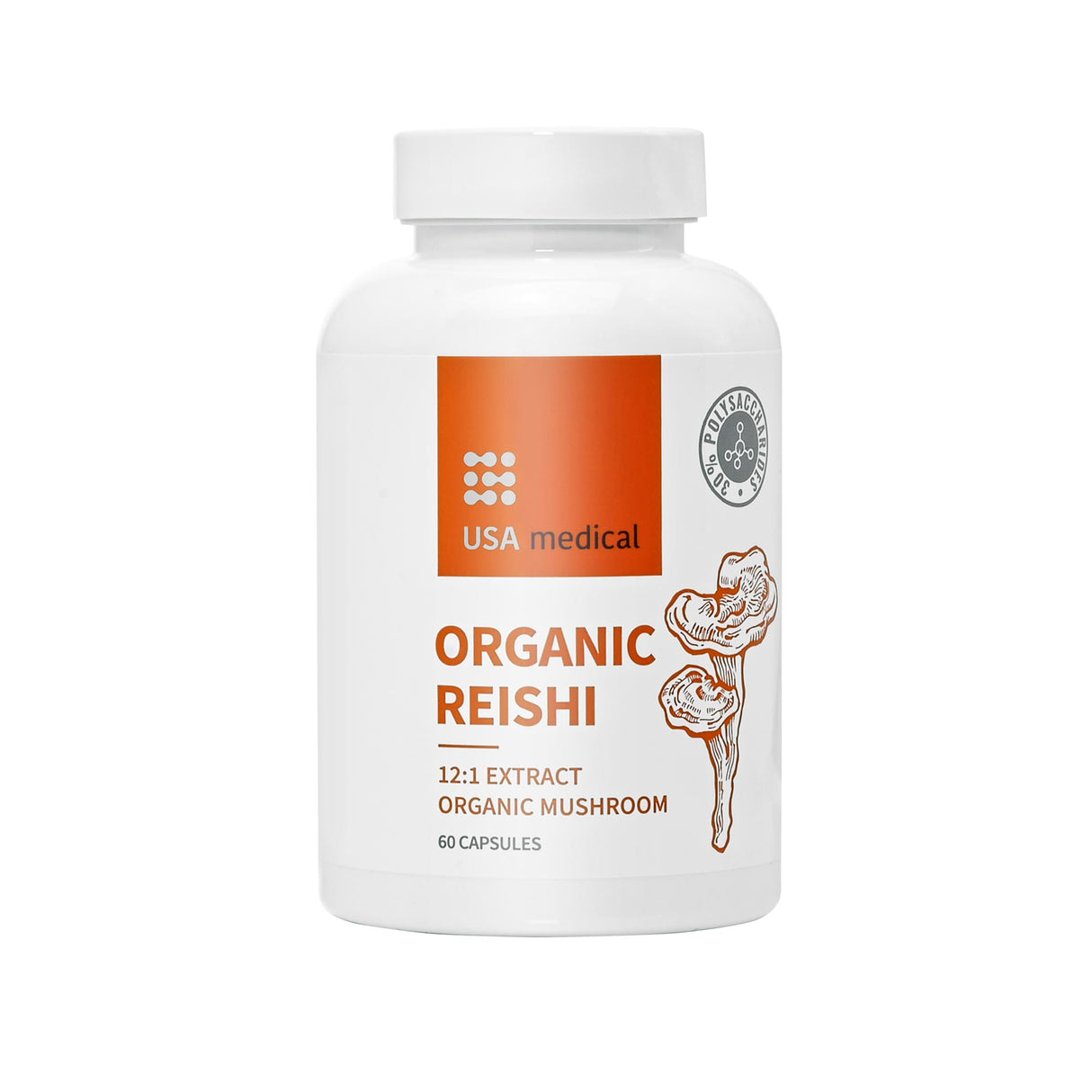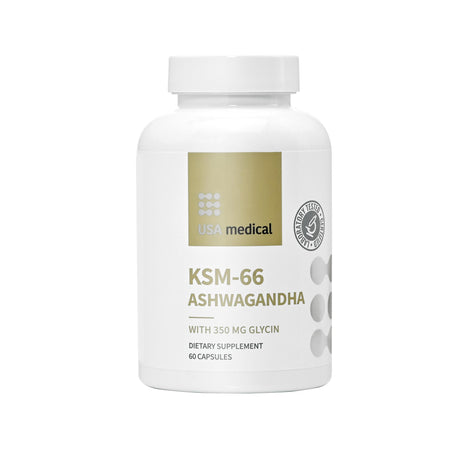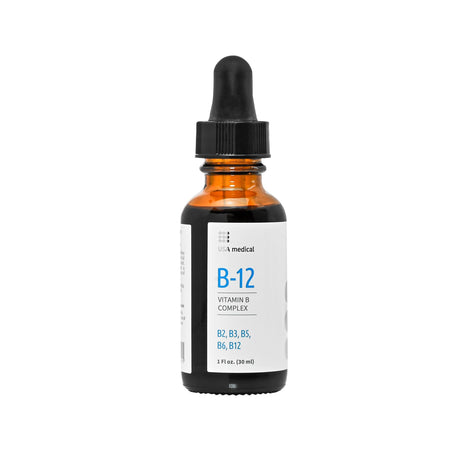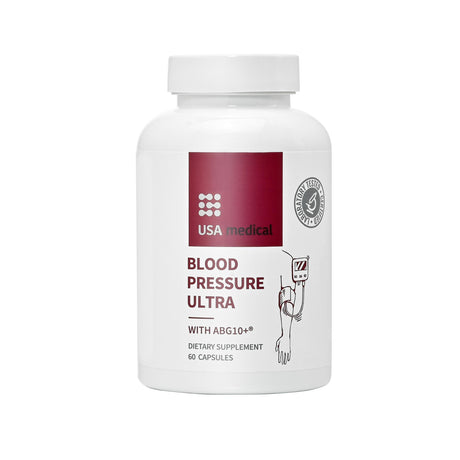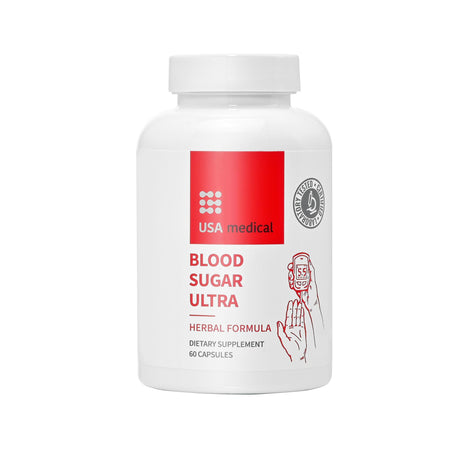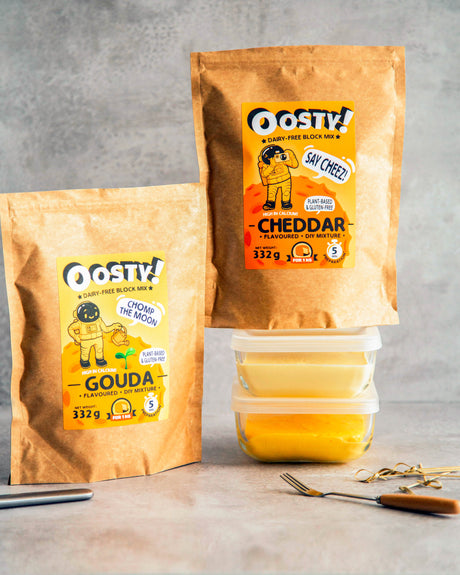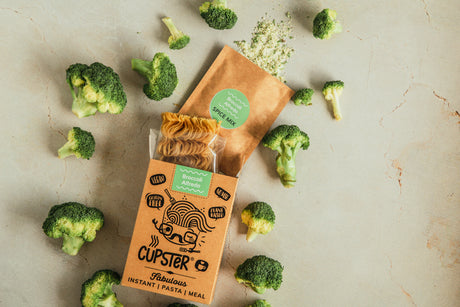USA Medical Organic Reishi Capsules 60 pcs
Express worldwide shipping available
Express worldwide shipping available
We use DHL Express shipping to deliver our products in 2-5 days worldwide.
Your Health Matters: Explore Our Top Picks!
Your Health Matters: Explore Our Top Picks!
Your health is of utmost importance to us, which is why we wholeheartedly recommend these products to you. We believe in them and are confident that they will assist you in your daily life!
Description
Description
ORGANIC REISHI – Only the Best of the Mushroom!
Our ORGANIC REISHI capsules contain an organic reishi mushroom extract with a polysaccharide content of over 30%! For even more effective absorption, we have enriched it with valuable acerola extract!
In creating our product, we focused on using only the valuable mushroom extract instead of mushroom powder, providing a pure and high-quality dietary supplement for those seeking the true essence of the mushroom, which is concentrated with polysaccharide active ingredients!
What makes our USA Medical ORGANIC REISHI reishi mushroom extract capsules different from other mushroom products? Because:
- It contains only the best part of the mushroom! A "12:1" extract with a concentrated active ingredient content!
- The extract has approximately 10 times the polysaccharide concentration compared to powder.
- This is not powder but a potent extract with over 30% polysaccharide content.
- Made using only organically grown organic mushrooms.
- Extra fine grinding for releasing active ingredients and thus excellent absorption.
- Manufactured with the gentlest method: the extract is obtained from mushroom powder only through hot water extraction, without the use of alcohol.
- We made it even more effective with added acerola, as its extract helps with a stronger absorption of polysaccharides, so there is no need for a separate acerola supplement with the mushroom capsule.
- It contains no grains or prohibited mycelium, only the powdered mushroom fruiting body is used to make the extract.
Unfortunately, many mushroom powder products contain mycelium ("root" structure) instead of the mushroom fruiting body. Moreover, these products mainly contain the grain on which the mycelium grows. This is an unnecessary filler with low active ingredient content.
How is the USA Medical Organic Mushroom Extract Made? Careful Harvesting and Gentle Processing!
To preserve important polysaccharides, mushrooms are dried using different methods depending on the type and condition, either partially by sun-drying or in traditional drying systems for more sensitive mushrooms. The wood used for cultivation is used as fuel, and the ash is utilized as fertilizer on fields. Almost complete processing and recycling of materials was also an important goal for sustainability.
After the drying phase, the medicinal mushrooms' fruiting bodies are ground. Grinding processes vary depending on the mushroom type. Some mushroom species require coarse grinding or multiple grinding steps to achieve the desired fineness due to their nature.
The Extraction Process
The extremely fine powder is obtained using the particularly effective "shellbroken" method, which breaks the mushroom cell walls. After processing, our powder has a particle size of less than 0.125 mm, making it exceptionally high quality and biologically available.
This fine grinding ensures that the components can be absorbed particularly well in the body. Coarse powders and grits are hardly suitable for dietary supplement intake, as the body has difficulty utilizing the components in this form. Crushed medicinal mushrooms, for example, can be used to make teas. The extraction, which is done with hot water, ensures that the important components become biologically available from the mushroom extract. During the subsequent filtration and centrifugation, fibers and other insoluble substances are removed. From 100 kg of dried mushrooms, only 6-20 kg of extract remains after extraction, depending on the mushroom type.
The mushroom powders that form the basis of the extracts also contain polysaccharides. However, both the quantity and biological availability of these important substances are lower compared to extracts. Mushroom powders used in teas are interesting due to their general composition and the diversity of nutrients.
In extracts, the focus is on high polysaccharide content. During the complex and lengthy extraction process, polysaccharides are released from the mushroom cell walls, making them biologically available. Polysaccharides include beta-D-glucans, which, like other polysaccharides, are the focus of many international studies.
Learn More About Reishi Mushroom!
The reishi mushroom has been one of the most well-known and respected ingredients in various Eastern cultures' medicine for nearly 2000 years. Known for its kidney-shaped cap and shiny reddish-brown shades, Reishi's scientific name is Ganoderma lucidum. Reishi typically grows on decaying hardwood trees in the temperate forest regions of Asia, Europe, South America, and the United States.
The beneficial effects of the reishi mushroom on body and mind were first discovered in Asia, with its medicinal use dating back thousands of years. Among the wide range of mushrooms used in traditional and herbal medicine, reishi has one of the most diverse and longest histories. Excitingly, modern science increasingly confirms that the respect for reishi's properties is well-founded.
Documented references to reishi's physiological effects date back 2400 years, and its depiction often appears in ancient Chinese and Japanese artworks. However, the mushroom has probably been used as an herb in the Eastern Hemisphere for more than 4000 years, including in Korean and Indian cultures.
Ancient Chinese herbalists called reishi Lingzhi, meaning "herb of spiritual power." Traditional Chinese medicine doctors adopted the term "mushroom of immortality" to describe the all-encompassing health support they believed reishi could provide. Reishi was highly valued in ancient China for its medicinal properties, and due to its relative rarity in nature, it was long reserved for the nobility.
Practitioners of Traditional Chinese Medicine (TCM) prescribe Lingzhi to influence the heart, lungs, liver, and kidney channels to balance Qi (the body's vital energy), calm the mind, and alleviate coughs and asthma. In TCM, reishi is revered as the number one adaptogen in the Chinese Pharmacopoeia. Adaptogens are natural substances that help the body cope with and adapt to physical, chemical, and biological stress factors.
Reishi mushroom is listed in the Chinese Pharmacopoeia (2000), and it is promoted for balancing Qi, easing the mind, and supporting respiratory health. Reishi remains a cornerstone of natural medicine in Eastern cultures. Due to globalization and the increasing number of people seeking natural solutions for health maintenance, scientists are now investigating the validity of health claims surrounding traditional herbal remedies.
Reishi's physiological effects have been studied in numerous human and animal studies across various areas: immunomodulation, antioxidant, antibacterial and antiviral properties, cancer, liver protection, blood sugar regulation. However, most studies have been conducted on animals or cell culture models. Human trials are often small, and results do not always support in vitro findings. The chemical data and anecdotal evidence regarding reishi's effects must be supplemented with well-designed human studies to clearly determine whether the purported health benefits are valid and significant. Source
Reishi Mushroom Nutrient Content
It contains several valuable macronutrients: proteins, complex carbohydrates, and small amounts of fats. Reishi is rich in minerals, including potassium, phosphorus, zinc, and manganese, and provides essential trace elements. Additionally, researchers have identified approximately 400 bioactive compounds, including polysaccharides, triterpenoids, nucleotides, sterols, steroids, fatty acids, and proteins/peptides.
What Are Polysaccharides?
Polysaccharides are one of the most potent and well-known active ingredients in mushrooms, consisting of long carbohydrate chains made up of various monosaccharides. Most polysaccharides are embedded in the chitin matrix of the mushroom cell walls. Soaking finely ground mushroom powder in hot water enhances the bioavailability of water-soluble, immunomodulating polysaccharides.
In fact, polysaccharides from mushrooms are such powerful bioactive substances that they have led health experts to focus on mushrooms as a food with medicinal benefits.
Scientific Background on Polysaccharides:
Polysaccharides are the most accessible natural biopolymers with varied physical and chemical properties, making them promising candidates for many biomedical applications. Thorough investigation and clarification of polysaccharides' bioactivity is crucial for gaining deeper insights into their potential effects and fully exploring their future applications. Over recent decades, polysaccharides have garnered significant attention and are considered one of the most effective alternatives to traditional therapies.
Numerous studies have investigated how polysaccharides may impact the following areas: Source
- Digestive system/gut flora
- Metabolism and heart health
- Immune system
- Energy and mood
- Nervous system
- Inflammatory processes, tumors
Possible Side Effects of Reishi
As with any dietary supplement, it is important to consult your doctor before using mushroom extracts, especially if you are taking medications, or if you are about to undergo surgery or any medical procedure.
Sources:
- Wasser, Solomon P., 2005. Reishi or Ling Zhi (Ganoderma lucidum). Encyclopedia of Dietary Supplements. DOI: 10.1081/E-EDS. W 2016, p. 748-758.
- Zhou, Shuang, et al., 2014. "Ganoderma lucidum: A Potential Medicinal Mushroom for the Treatment of Cancer." Anticancer Agents in Medicinal Chemistry (Formerly Current Medicinal Chemistry-Anti-Cancer Agents), vol. 14, no. 6, pp. 879-891.
- https://www.ncbi.nlm.nih.gov/pmc/articles/PMC7838237/
Payment & Security
Payment methods
Your payment information is processed securely. We do not store credit card details nor have access to your credit card information.
Explore More USA Medical Products
View all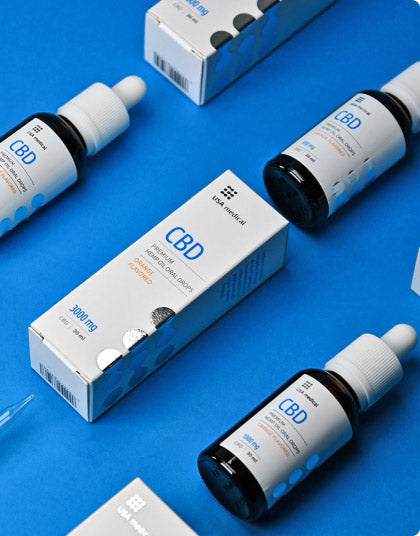
Check Out Our Full Range!
Discover a wide variety of vitamins and CBD oils waiting for you. Dive into the complete USA Medical collection now!

The Story of USA Medical
A Los Angeles Origin
There is always a solution...
The USA Medical team has personally experienced the benefits of plant-based products, which inspired the launch of their business. For them, this is not just work but a mission to help others.
The company's founder spent years visiting doctors in search of a solution to his health issues. By chance, he encountered a natural ingredient he had never heard of before. He tried it, and within a few months, he found a solution to a problem he thought would haunt him for life. This experience motivated him to make these natural ingredients available to others under his own brand.

